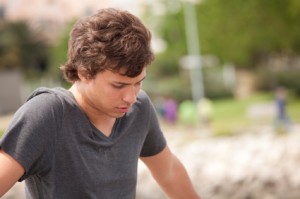 Most parents want their children to stay away from drugs while they are growing up. But when kids do start to use one drug or another, it’s not like they walk up to their parents and announce the fact. Quite the opposite. In most cases, they know their parents will disapprove and so they are going to conceal their drug abuse.
Most parents want their children to stay away from drugs while they are growing up. But when kids do start to use one drug or another, it’s not like they walk up to their parents and announce the fact. Quite the opposite. In most cases, they know their parents will disapprove and so they are going to conceal their drug abuse.
As this change usually coincides with the age a child starts to spend more time away from home, it can be hard for a parent to spot the changes. Drug use also coincides with the challenges a young person encounters as he (or she) works out how to deal with social pressures, more demanding schoolwork and similar outside influences. It’s not an easy time. A young person can manifest bad moods as he deals with rejection or conflict or failure on a school project. If a bad mood continues, it can be a sign of more serious problems.
Signs to watch for:
- When your child is home, does he (or she) spend much of his time alone in his room?
- Has his mode of dress changed? Does he resist your request for better grooming, haircuts, better dressing, a cleaner room?
- Has he lost interest in the games and sports he used to like?
- Does he seem secretive? Does he seem to hide objects or resist your interest in his backpack, other bags or pockets?
- Has he started spending more time away from home with kids you don’t know well or at all?
- Does he resist your interest in his friends?
- Does he have objections to spending time with his family?
- Does he no longer confide in family members he used to trust?
- Does he often come home late?
- Has he become less responsive to the idea of his parents being authorities he can trust?
- If you question him, does he turn on you and blame you for his problems or accuse you of invading his privacy? Does he deflect your questions with blame on others or illogical accusations that make little sense?
It’s possible that these signs could indicate other problems but whatever the cause, the young person is obviously going through serious stress. The wrong thing to do is leave the situation alone and hope it will get better.
So what can you do?
For one, look for drugs. Check jackets, drawers, pockets, backpacks. Monitor where your child is going and who he is going to be with. Set curfews and enforce them with penalties that mean something to your child. Don’t back down.
Your child’s annoyance or anger with you means little compared to the fact that he will know that you actually care. No matter what his immediate response, he will know that he is cared for and being monitored. At a critical moment, this knowledge could influence an important decision. Such as the moment when a “friend” offers him heroin. It might seem to you like this could never happen to your child but based on a dozen interviews with young people who recently recovered from addiction, it happens to plenty of teens.
If he knows his parents are watching closely, he might not take that step. If he knows he might be drug tested and disciplined, he might give that “opportunity” a miss. That’s a decision that could save his life.